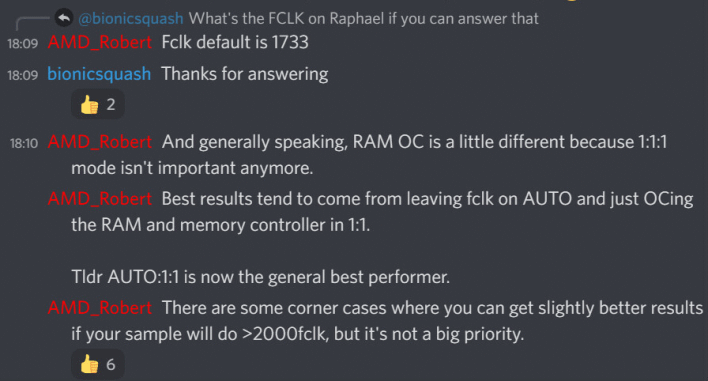AMD Addresses Zen 4 Ryzen 7000 Series Memory Overclocking And Configuration Details

As a refresher, Intel's processors use a ring bus that connects the processor cores and their cache with the "uncore," or all of the things that are not "processor cores and cache." The ring bus doesn't share a clock domain with the memory controller, so they can run at different speeds. On Ryzen, the "Infinity Fabric" that serves a similar function does share a clock domain with the memory controller. That means that when you tune your RAM, you're also tuning the speed of the processor's interconnect.
In practical terms what this means is that Ryzen CPUs' performance is affected much more by their memory speed than Intel's processors are. That's why you'll see build guides around the web insisting on high-performance memory for Ryzen rigs even more than for Intel machines. Modern Ryzen systems have the ability to decouple these clocks, but it is generally considered to be not worth the hassle as it can introduce additional latency from the clock mismatch.

So saying, adjusting the memory speed won't necessarily affect your fabric clock speed with Zen 4, just like the better Zen 3 boards. That's encouraging, especially in the case of users who want to run four DIMMs. If your memory has to drop to a slow speed like 3600 or 4000 MT/s, you won't necessarily be faced with a super-slow fabric clock.

Instead, it seems that the way Zen 4 achieves such high memory clocks is simply through decoupling those clock rates. The FCLK still runs in the same range of frequencies that it does with Zen 3. Hallock notes that some chips may be able to do 2000 MHz or faster, which is true of Zen 3 as well. It's just that the RAM is free to run as fast as you can get it to go.

